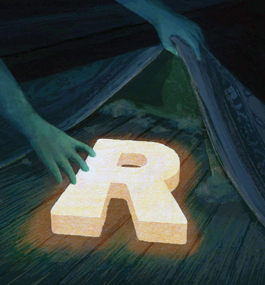Turning Points
Silence Is Not an Option

Amanda Godowski
by Michelle Bowdler ’82
In summer 1984, two years after I graduated from Brandeis, I was the victim of a violent home invasion and rape. I was living in an apartment in Boston with friends from college, none of whom were home that night.
For years after the assault, I floundered in temp jobs, trying to hold on to the hope that I would someday return to a semblance of a career. The act of sexual violence had a pervasive, constant impact on my life, which only underscored the inadequacies of the response by the law enforcement officials to whom the rape was reported. Although the attack was one of a series of crimes that led to the formation of the Boston Sexual Assault Unit, I never heard from any of the detectives charged with investigating my case.
Eventually, I went on to earn a master’s in public health. Today, I’m the director of health and wellness at a Boston-area university. Every day, I see young people who are suffering because of their experiences with sexual violation, and the subsequent pain of being disbelieved and shunned.
Rape is the least reported and least successfully prosecuted felony. Fewer than 2% of reported rapes become a case that ever sees the inside of a courtroom; only half of these cases result in conviction.
I decided to find out why rape is a largely neglected crime. My book “Is Rape a Crime? A Memoir, an Investigation and a Manifesto” came from this work. It tells my own story. It also advocates for change in the way crimes of rape are addressed and questions why we tolerate hundreds of thousands of uninvestigated rape kits languishing in warehouses and crime labs across the U.S.
Brandeis is where I learned the skills I needed to write this book, and it taught me formative lessons that sustained me during the most difficult times in my life. It was where I first heard the term “social justice.” It was where I came out, became a campus activist, developed a love of literature and writing, and began to understand how words can persuade hearts and minds. Professors challenged me to think critically and speak up for what I thought was right. Protest was applauded as necessary to a democratic society.
As it happened, at Brandeis I studied sexual violence, mostly concentrating on its political context: rape as a weapon of war, rape as power, rape as an extreme representation of misogyny. I didn’t yet understand rape’s significant impact on individuals — the stubborn brutality of trauma, and the impact post-traumatic stress can have on your work, your life, your education and your capacity for being intimate with others.
But during my senior year, the political and the personal conflated. Campus police informed students that “something” had happened near the train tracks and that we should all be careful. That something turned out to be a sexual assault. I knew because the survivor, feeling invisible, had reached out to a few of us in the Women’s Coalition.
Why was the word “rape” unspeakable? How would anyone know what to do or how to be aware without knowing what the “something” was? With the survivor’s permission, a couple of us worked on an article for The Justice. Its headline was “Something Happened — It Was Rape.” After the issue was printed, we bulk-mailed (there being no internet at the time) as many copies as we could to parents to make them aware and because, in all honesty, we knew this action would get the university administration’s attention.
I still think a lot about what we did and why we did it. We were angry that the word was unsayable. Rape is epidemic, yet naming it was — and still is — so very hard to do. Imagine for a moment how that makes survivors of sexual violence feel. In large part it’s why, more than 30 years later, I chose to use the word “rape” in the title of my book — not hidden, not euphemized.
When I arrived at a small liberal-arts school in Waltham, Massachusetts, I didn’t know how much my life was going to change. Each book I read, each lecture I attended, each conversation I had, each campus controversy helped me grow, learn about myself and the world, and find a voice that continues to try to make the world more just.
My book is a nod to that time, when I learned that silence is not an option. As Justice Louis Brandeis tells us, “Sunlight is the best disinfectant.”
Michelle Bowdler’s “Is Rape a Crime?” (Flatiron Books) was longlisted for the 2020 National Book Award in Nonfiction. Read more about it at www.michelle-bowdler.com.
